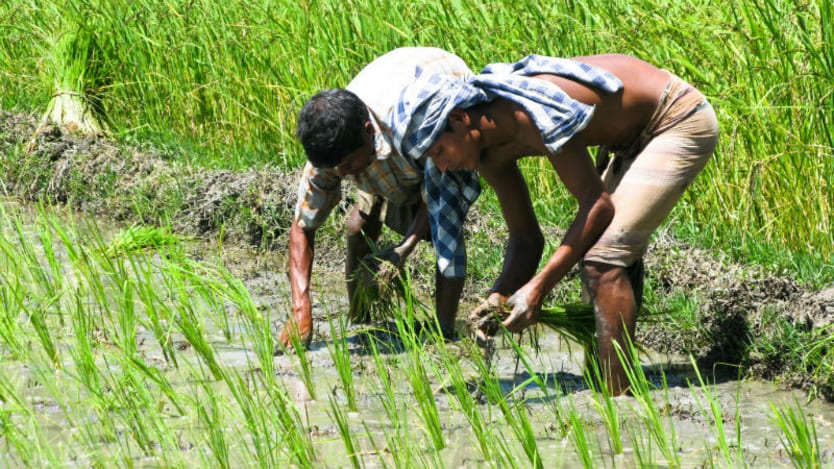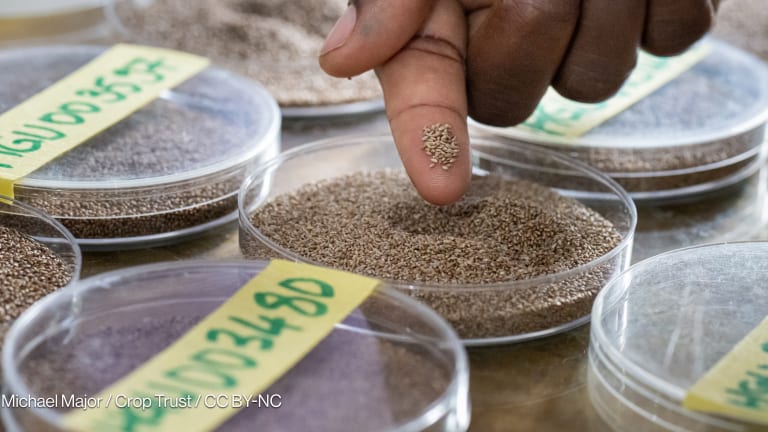
The U.N.’s annual climate talks have increasingly become an expo of competing environmental priorities, from renewable energy to green infrastructure, reducing deforestation to water conservation.
Yet when it comes to the impact of climate change, it is the millions of poor smallholder farmers worldwide who bear the brunt of the increasingly devastating losses.
As the people who ultimately feed the world and watch over our natural resources, they are our frontline. Any climate change strategy is meaningless if it does not target them and improve their resilience.
This year has brought extreme weather to every corner of the world. Our best chance of adapting to these rapidly changing conditions is through investing in smallholders while equipping them with the skills and resources to mitigate the impact of agriculture on the environment.
The case is made both by the symbolic hosts of this year’s climate talks, Fiji, and the actual hosts, Germany.
Fiji, a country where around 70 percent of the working population is employed in agriculture, is highly vulnerable to severe weather and natural disasters. In February 2016, the worst cyclone on record hit, destroying 30,000 homes as well as farms.
By helping smallholders to better withstand the impact of changing weather patterns, we can help secure their livelihoods and their food supplies. At the International Fund for Agricultural Development (IFAD), we’re supporting the Fijian government as well as neighbouring Pacific island nations to strengthen agriculture as a business while promoting climate resilient technologies.
One way we are doing this is by funding climate resilience through the Fiji Agricultural Partnerships Project (FAPP). By using climate-smart innovations such as more resilient crops, and accessing training to improve post-harvest handling, farmers in Fiji can instead start to transition from semi-subsistence to commercial agriculture. The hope is that this can soften the blow of future natural disasters caused by a warming world. We’re also supporting the Outer Island Water and Food Project across other nearby island nations, which focuses on women with home gardens while also establishing rainwater harvesting structures to improve drinking water supplies. This work will benefit some 10,000 people, helping them live more sustainably.
Elsewhere in South Asia, we have seen extreme flooding hitting countries such as Bangladesh, which is often described as ground zero for climate change. As a result, the monsoon is slowly shifting to coincide with the pre-harvest period for rice, a key staple crop, putting lives as well as livelihoods in danger.
One crucial initiative for climate adaptation is the adoption of early warning systems to provide farmers with better forecasts of extreme weather, while new infrastructure and reforestation will create man-made and natural wave barriers to better protect homes and farms. As well as improving defences against floods for a key crop, this will also offer significant carbon storing potential, thus mitigating greenhouse gas emissions.
When it comes to potential donor countries such as this year’s host, the case for investment through organizations such as IFAD is borne out by the numbers. For every dollar invested by Germany in IFAD, the total pro-poor investment delivered is equivalent to $4.
The efforts that Germany’s 400 million euro loan from development bank KfW has supported include helping young entrepreneurs in Cameroon improve their small businesses through livestock rearing so they are more resilient to climate shocks.
It has also meant championing gender equality by ensuring 50 percent of our beneficiaries are women. In many developing countries where women take a leading role in farming and livestock rearing, this is essential to the adoption of climate-smart practices.
For millions of rural poor, agriculture is the best route out of poverty. It is also the best opportunity to address climate change. For every dollar invested in climate action through agriculture, the world saves $7 in future relief costs while also offering greater protection for the 2.3 billion people who live in rural areas and depend on small-scale farming.
This is why IFAD's flagship initiative, the Adaptation for Smallholder Agriculture Programme (ASAP), the world's largest fund helping smallholders adapt to climate change, has committed $314 million to rural areas with the help of donor countries worldwide.
At this year’s climate talks, we hope to see more attention on the people who can help us address environmental challenges while helping to feed a growing global population.
Building a more stable and sustainable world must start with smallholder farmers.
Read more Devex coverage on the COP23 and sign up for our daily briefings.
Read more coverage on COP23:
► Can Fiji deliver a developing countries' climate conference?
► How to make a success of COP23: Q&A with Barbara Hendricks
Sign up for our daily briefings for everything you need to know from this biggest annual climate conference.








